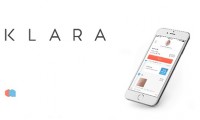-
Klara Lands Another $11.5 Million in Series A Funding
- Source: MobiHealthNews
- 543
- August 20, 2018
-
Development of Two EHR Based Programs for Tracking Medications and Patient Care
- Source: FierceBiotech
- 872
- August 17, 2018
-
System C Signs Contract to Offer Pooled Child Health Record in South West England
- Source: DigitalHealth
- 1,015
- July 29, 2018
-
Biomedical Blockchain Research Center Opens at Mount Sinai
- Source: Healthcare IT News
- 1,144
- July 26, 2018
-
Synopsys Ranks Medical Records Higher than Credit Card Details
- Source: The Verdict
- 1,106
- July 26, 2018
-
NHS to Utilize $540 Million New Funding to Boost Hospital IT
- Source: HealthcareIT News
- 1,013
- July 25, 2018
-
AstraZeneca, Geisinger Come Together to Develop Asthma Care
- Source: The Verdict
- 1,458
- July 23, 2018
-
Cerner & Lumeris Collaborate for Value-Based Care Solution
- Source: MedCityNews
- 1,092
- July 11, 2018
-
Patent Submission – Wearable Biometric Scanner Based EHR System
- Source: MobiHealthNews
- 968
- June 25, 2018
-
Remote Patient Monitoring Startup could Spell Major Turning Point in Digital Health
- Source: MobiHealthNews
- 962
- June 22, 2018
your submission has already been received.
OK
Subscribe
Please enter a valid Email address!
Submit
The most relevant industry news & insight will be sent to you every two weeks.













